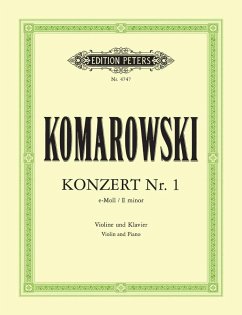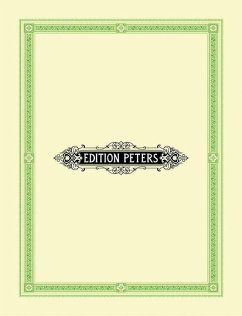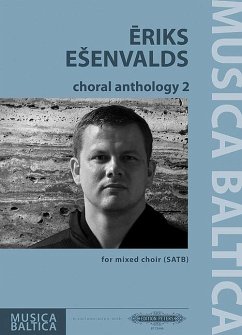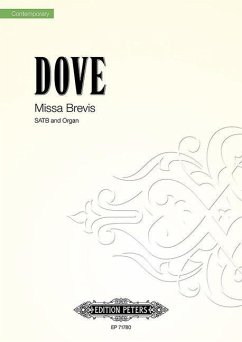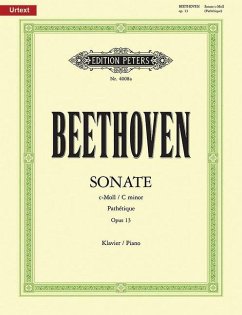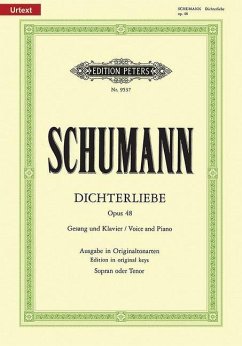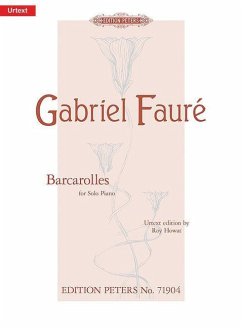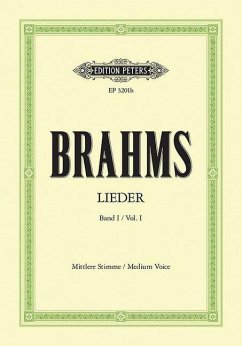Nicht lieferbar
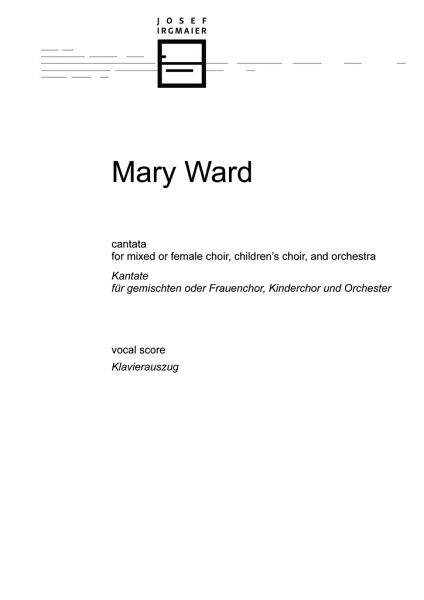
Mary Ward
cantata for mixed or female choir, children's choir, and orchestra: vocal score
Versandkostenfrei!
Nicht lieferbar
"Mary Ward" is a cantata in twelve movements. It was commissioned by the Mary Ward schools of Altötting for their 300th anniversary of foundation. The twelve movements are guided by Mary Ward's life and mostly use recorded sayings of her. The work can be performed as the cantata it is, as a scenic cantata, or as an oratorio with a spoken text, freely chosen and of epic-dramatic character. The difficulty level of the score calls for advanced players among the pupils, yet affords still rather beginners opportunities to serve as chorical reinforcements. The musical style shows characteristics fr...
"Mary Ward" is a cantata in twelve movements. It was commissioned by the Mary Ward schools of Altötting for their 300th anniversary of foundation. The twelve movements are guided by Mary Ward's life and mostly use recorded sayings of her. The work can be performed as the cantata it is, as a scenic cantata, or as an oratorio with a spoken text, freely chosen and of epic-dramatic character. The difficulty level of the score calls for advanced players among the pupils, yet affords still rather beginners opportunities to serve as chorical reinforcements. The musical style shows characteristics from rock, jazz, musical, film music, noise, and impressionism as well as a fondness of canonical forms. The often unusual yet catchy melodies help Mary Ward's "cheerful mind" into one's own life. // "Mary Ward" ist eine Kantate in zwölf Sätzen. Sie entstand im Auftrag der Maria Ward Schulen Altötting zu deren 300-jährigem Gründungsjubiläum. Die zwölf Sätze orientieren sich am Leben Mary Wards und verwenden hauptsächlich von ihr überlieferte Sprüche. Das Werk kann als Kantate, szenische Kantate oder Oratorium mit einem frei wählbaren, episch-dramatischen Sprechtext aufgeführt werden. Der Schwierigkeitsgrad der Partitur wendet sich in erster Linie an fortgeschrittene Schülerinnen und Schüler, bietet aber auch noch eher Anfängern Gelegenheiten, als chorische Verstärkung zu fungieren. Der Musikstil zeigt Eigenheiten aus Rock, Jazz, Musical, Filmmusik, Noise und Impressionismus sowie eine Vorliebe für kanonische Formen. Die oft ungewöhnlich geführten Melodien gehen rasch ins Ohr und helfen dem "heiteren Gemüt" Mary Wards ins eigene Leben.




